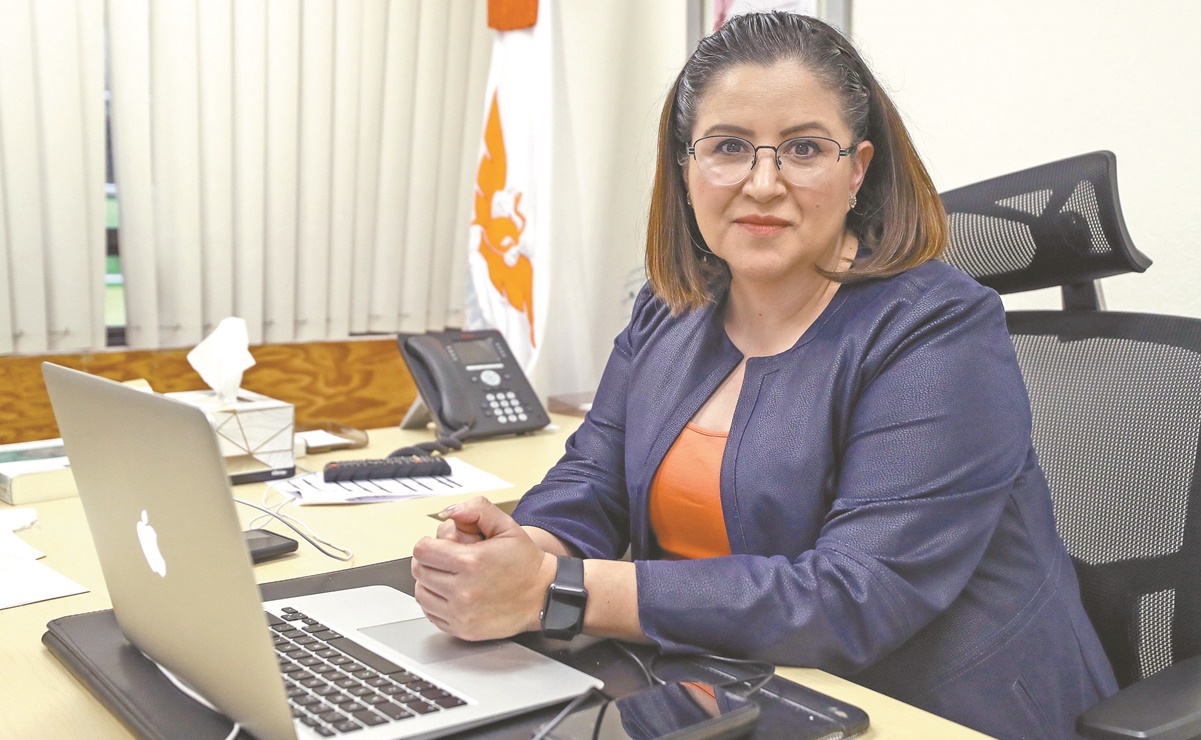Despite the legislative advances that have taken place, and the presence of women in Congress, the deputy of Citizen Movement (MC) Martha Tagle argues that resistance persists to advance the feminist agenda in the country.
The legislator maintains, in an interview with THE UNIVERSALThat the resistance is still there and in some issues they are greater than in others, but men are beginning to measure themselves, because, he adds, now it has a political cost to oppose it.
“It is not enough that women are in power, but that we have power. We need to transform it so that we can talk about a substantive parity and not just numbers. We women will have power when we change the configuration of these spaces. This is reproduced in all collegiate bodies: even if there are equal presence of women, the decision-making bodies are of men ”, he cuts.
Also read: 250 aspiring candidates for Citizen Movement are registered in CDMX
Considers that now that women have a more important presence in decision-making spaces, it is sought that their vision influences issues of great importance, such as public security. Formally, she warns, no party is going to say that it is against the participation of women, but from within, blackmail, threats and political violence persist so as not to let them occupy positions in their own parties.
Tagle is from Puebla, feminist and political scientist; has been a professor at the Faculty of Political and Social Sciences of the ONE, speaker at the United Nations on the legal situation of women in Mexico and has promoted the agenda in favor of women from his legislative work and through various networks.
One year after the end, what is the balance on the Parity Legislature?
—It is very important that women come to Congress, because their right to take part in the most important decisions is recognized and they have managed to put issues on the agenda that otherwise would not be discussed: parity in everything, political violence. Furthermore, in the commissions, the most active are chaired by women, and there is a constant presence on the rostrum.
Do problems persist?
—One is the lack of experience that always makes things difficult, although that is something that is resolved. All we women need is to speed up the learning curve, men are several laps ahead of us because several of them have gone through the same positions many times and have more experience. And the only way to learn to hold a position is to hold it.
Structurally, women face inequality gaps, they have a series of care tasks and responsibilities that men do not have, and that no matter what position you are in, even if you are a deputy, you will continue to have them. This has to be resolved from the structural part of politics, because it also limits women to form part of the most important decision-making bodies of the Camera [Baja], what is the Political Coordination Board [Jucopo].
In Jucopo there is only one coordinator. There is more access, but there are still spaces where they are not yet allowed to pass …
—We reached parity, women preside over the most important commissions and with work they endorse their daily commitment, but everything runs up against Jucopo. Even though the Board of Directors have more women than men, at the end of the day those who continue to have control and power are men.
La Jucopo, that space where you decide what topics are going to come out and all the most important decisions are made, is a space dominated by men. As a curious anecdote: it only has one bathroom and it is for men (…) because it is a space that was never thought to be occupied by women.
Also read: Jucopo asks to redirect public spending in 2021 to avoid crisis
There are structural issues: the coordinator of the parliamentary group is required to have 24/7 availability, but those are the male forms of politics that limit women, but also the internal life of the parties, which decide who will be the coordinators, is run by men who elect men to represent them.
Parity not enough?
—It is not enough that women are in power, but that we have power. We need to transform it so that we can talk about a substantive parity and not just numbers. We women will have power when we change the configuration of these spaces. This is reproduced in all the collegiate bodies: although there is an equal presence of women, the decision-making bodies [están a cargo] of men.
What is the difference in the exercise of power between men and women?
—Now that we have a more important presence in decision-making spaces, it is intended that women arrive with our issues and way of seeing, as in that of security.
We need more women to make decisions that are different: legislating on care and the rights of domestic workers, because we know that without them many women simply and simply could not work, or taxes on menstrual hygiene products.
For men the question was: “Why do we have to talk about it in the House?” Well, because they pass through our lives and because menstruating has a cost and a tax that only women pay.
There is a long way to go, but we are putting on the table issues that have to do with women, [y que] they have to be attended from Public politics, because it benefits us all.
Has there been resistance?
—They are still there, and in some issues they are bigger, but men are beginning to measure themselves more, because there is a discourse of what is politically correct.
Also read: TEPJF orders parity for governorships
They are resistances that are experienced, but are not expressed, because doing so has a political cost that is increasingly greater and that they do not want to pay, the presence of women is increasingly important and fewer of us are willing to stay. quiet, to settle and not be valued.
How are they expressed in politics?
– Formally, no party is going to say that it is against the participation of women, but from within we see the blackmail, the threats, the political violence to prevent them from occupying positions in their own parties. Publicly, you will see the parties giving messages in favor of the Women rights, although from behind they are making life impossible for their own companions.
Are you worried that politicians may hang onto the women’s agenda to boost their campaigns?
—There will be the intention of using it, because the only permanent, active and present movement in this administration is that of women, they continue to demonstrate and maintain a permanent presence; the political parties have identified that they have to speak to them.
The big challenge is to dismantle what it only means to use a cause and really identify those who have a serious commitment to the agenda. It is easy to carry it as a flag, but in the facts we can see the performance on the subject: the support for the reforms, the budgets and what their position has been. That implies a job and a vote of greater conscience.
– .


